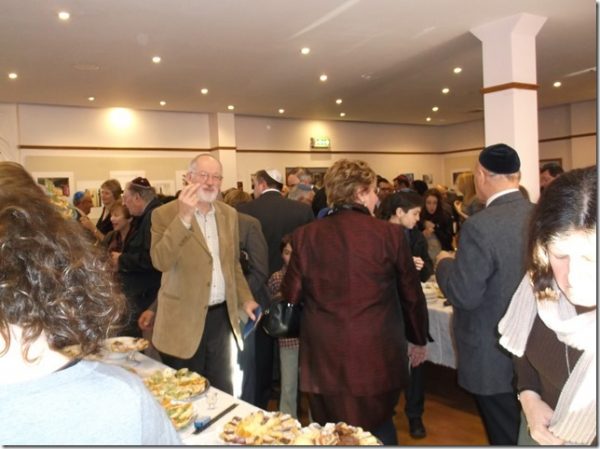
by Michael | May 11, 2018 | Blog
There’s certainly a wedding guest etiquette, but it’s often unspoken. How, then, is one to know what to do and what to avoid?
Some guest etiquette is common sense. But thoughtlessness sometimes enters into it.
I know, as a celebrant, that being a guest can sometimes prove to be less than simple.
If you’re not careful, you can get it wrong – and, potentially, months before the big day!
RSVP
It’s easy to put off responding to the invitation because you’re want to be sure you are free. (Or because you forget about it!). But consider those making the arrangements. They have to book all manner of things (not least, the venue and catering), and this has to be done well in advance. Deposits need to be paid. They need to know numbers fairly soon.
If you’re able, then be one of those who responds as soon as possible.
Tweaking The Invitation
You may want to bring your child(ren), but if there is no mention of them on the invitation, then accept it. (It’s not meant as a snub, but there simply have to be limits on the numbers invited.) Obviously, the same goes for other people you may feel should be invited.
You may have a new partner, but don’t assume you can bring them. (For one thing, you might disrupt the seating plan.)
Participating
You could get asked to take on a role at the ceremony. Maybe as bridesmaid or usher. It’s an honour, so make sure you find out well in advance what the expectations are of your role. Will you have to attend a rehearsal the day or morning before or wear particular attire?
If you don’t want to (or can’t) do it, then give maximum notice Then there’s time to replace you, if necessary.
On the Day – Punctuality
Arrive well (30 minutes?) in advance – and don’t upstage the bride by a tardy, flustered entry. If you have been delayed, then you should simply wait until the end of the ceremony – just don’t interrupt it.
If you’re the Best Man, you should arrive an hour before the ceremony starts. If you’re going to be late, try and call the groom, at least, and warn him.
Dress
You will normally be given guidelines in the invitation. Go with what you are asked to wear, even if you might prefer a different style of attire.
At the Ceremony
Ushers may show you to your seat. If that’s not the case, leave the front two rows free for the family and VIPs.
Is the Ceremony “Unplugged”?
There will probably be an official photographer in attendance and his/her photos will matter a lot to the couple. It would be far better if they could show your smiling face rather than an iPhone held in the air. Take photos after the ceremony, by all means. Always respect any requests in this regard in the invitation or on the day.
Behaviour
It should go without saying that you ought to drink responsibly afterwards (and even more so, if you start before the ceremony!). Likewise, don’t trash the venue or embarrass yourself or the couple by loud or aggressive behaviour.
This is the biggest day in your friends’/relatives’ lives, so be grateful that they have chosen to include you. Enjoy the day – and enhance it for the happy couple. Make them glad they invited you!
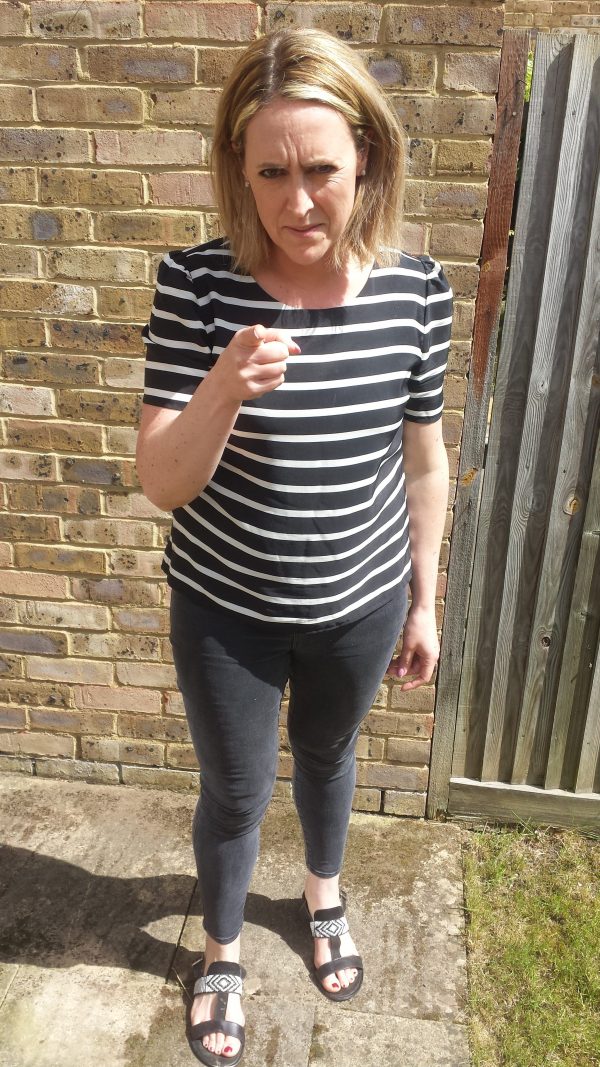
by Michael | May 11, 2018 | Blog
Sadly, couples are not always free to marry as they please. Very often they encounter opposition from their family. I know one mother who threatened to boycott the wedding (taking her whole family with her) because the couple had not opted for her chosen celebrant! It makes one wonder whose wedding it actually is.
The most common reason for opposing the wedding is disapproval of the new spouse. Perhaps he/she is not of the “correct” social class or colour. Maybe it’s a question of his/her sexuality. The truth may well be disguised, with a pretext such as “he/she isn’t worthy of you” or “they won’t be able to support you.”
The guest list
All weddings face the inevitable question: whom do you invite? It’s a tough one to answer at the best of times. You will probably start with close family and friends, but what if your closest relatives oppose your union?
Do you still include them?
Rejecting the rejectors
Do you decide to leave them out and just opt for your friends and (supportive) relations? After all, do you want negative people at your big day? They might bring the mood down – and, at worst, cause trouble.
Certainly, you’ll think twice before inviting people openly hostile to your union. On the bright side, they might decline and at least you’ll have gained kudos by having extended the olive branch!
Another olive branch
Another benefit that could accrue from inviting disapproving relatives is that they might, despite their own prejudices, attend and actually enjoy your tasteful and personalised ceremony. Wouldn’t that be something if you were able to ‘convert’ them and retain – even develop – a relationship with them?!
For many of us, there is the bond of love that unites us with our families. We may not always like our relations, but to upset and potentially do without them for the rest of our lives is not always desirable. Giving them a chance to stay connected with you (even loosely) is worth the effort.
If the worst comes to the worst, at least you’ll know you tried. And if it brings you together, couldn’t that be precious?
Come what may, your wedding will be a commemoration of love, with promises for the future. It’s not the day to heal rifts, but it may be the pathway to do so, and that is something which should be embraced.
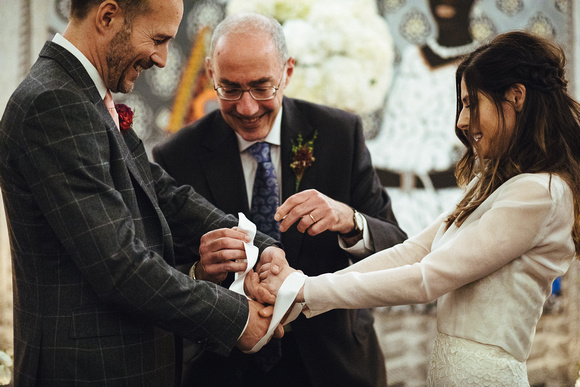
by Michael | May 4, 2018 | Blog
You may know the term “officiant” better as “civil celebrant”. Or you may not have even heard of either term!
If you’re planning a life-cycle ceremony like a wedding, it might be well worth your while to make the acquaintance of either. (By the way, the first term is the American version of the second.)
Why might you need one (or the other!)?
If you’re planning your wedding, it may not be a traditional religious service that rocks your boat. In truth, the idea of a register office ceremony may not appeal too much either. Many people shrug and accept it – “that’s the done thing” – but think again: it doesn’t have to be thus.
What does a wedding celebrant do?
A celebrant will give you ideas, listen to yours, develop them and then write a service that incorporates what you want and that reflects your wishes and personality. They then conduct the ceremony professionally on the day.
The best celebrants have three qualities: they listen well, write well and present well. None of those are particularly common in combination, so don’t underestimate this skill-set.
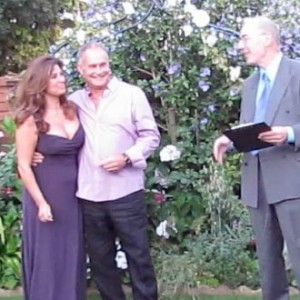
What does a celebrant offer?
- A celebrant will be a trained professional. He (for simplicity, I shall use the masculine throughout) will know what can go into a ceremony and how to structure it, and will be glad to advise and inspire you.
- Celebrants are not usually teenagers or youngsters straight out of college. This is probably not their first job nor is it likely to be their only one at any given time. They usually have some life and work experience, and this can be invaluable for practical and/or imaginative suggestions and advice.
- A good celebrant will take time to listen to you and understand your wishes. If you have an unusual theme or vision, that should not be a problem. The ceremony should reflect your individuality, so it will be tailor-made.
- The celebrant is a kind of choreographer. Depending on your wishes, he can organise entrances and exits, where people stand, how the rituals are enacted and what happens when.
- The celebrant will write a ceremony from scratch. This means that your service will be unique. If the celebrant enjoys writing, he will take trouble to source or compose beautiful and meaningful readings and prayers (as desired). The result will reflect this care and dedication.
- The celebrant will be prepared – indeed, probably keen – to do some research, if you want to introduce something unusual into your ceremony. For example, a particular religious or cultural element.
- The celebrant uses a script. You agree it with him, as you go along. So not only will you have been consulted before and during the creative process but you will not be faced with any unpleasant surprises on the big day. That should be worth quite a lot to your peace of mind!
- Not only does the celebrant need presence but he should be a good presenter. He needs good diction, audibility and the ability to avoid talking in a boring, monotonous drawl. He will be able to project his voice, and vary the pitch, modulation and speed, to bring out the emotion of the moment and involve the audience.
You may well be looking to save some money here and there, and I sympathise entirely. But unless you are very lucky, the chances are that, to find someone who will listen to you, write what you want in a memorable way and present it effectively and professionally, a celebrant will be your answer. (Or an officiant!)
Surprisingly enough, that’s what Michael does for a living! Feel free to contact him for a non-obligation chat.
Main photo: www.lyndseygoddard.com
by Michael | Apr 17, 2018 | Blog
Love it or hate it, social media are here to stay. But how much of a role should they play in a wedding and in the build-up?
OK, so I’m an ageing civil celebrant, not some tech-savvy teenager! However, I do have a few thoughts on this subject that might be useful.
Engagement/wedding
However tempting it may be, resist posting the good news of your engagement or wedding date on Facebook (or wherever) until you’ve told all your family and close friends first. It’s a common-sense, tactful thing. If you ignore that, you may end up causing a lot of offence.
Invitations
There’s nothing wrong with using social media for your invitations (e-vites) – it’s a lot cheaper than printed invitations and can still look good. (If you have a teenager in tow, they may design a fabulous invitation for you !) (You can always send printed invitations to your more conservative friends/relatives, if you choose.)
Invitation replies
You need to be able to track the replies, so you have to be consistent and clear. It may be best not to use social media here (not [quite] everyone has a Facebook account, for example). E-mail is probably safe, but technological problems are not unknown! What if your computer dies? Thus snail mail may be the best bet. So, ensure your address is on the invitation, even if the invitation is sent via social media.
The big event
It pays to communicate with your guests. Especially if you have special wishes.
You may well be happy with a photography free-for-all. That’s fine. If you want no photography during the ceremony, however, you can put a note in the programme or post this fact on the wedding website. Most – if not all – people will respect your wishes. ‘Unplugged’ weddings are becoming increasingly common nowadays.
Hopefully, guests who do take shots regardless will, at least, not post these for a few days. (It’s best to go with the flow, if people disregard your request – it’s not worth letting their lack of consideration spoil your big day.)
Of course, people should be welcome to take photos of themselves, if they want. You may set up photo opportunities for guests at the end of the ceremony (eg signing the register).
Afterwards
Do send out ‘thank you cards’ – but not by e-mail or social media. They’ve got to be hand-written.
So use social media to help you, by all means, but be tactful and considerate about it.
And if you’re looking for a non-tech-savvy person of more mature years to put together and conduct a truly magnificent ceremony, I think we know somebody who might fit the bill!
Visit www.shawprograms.co.uk for help planning your event (see photo).
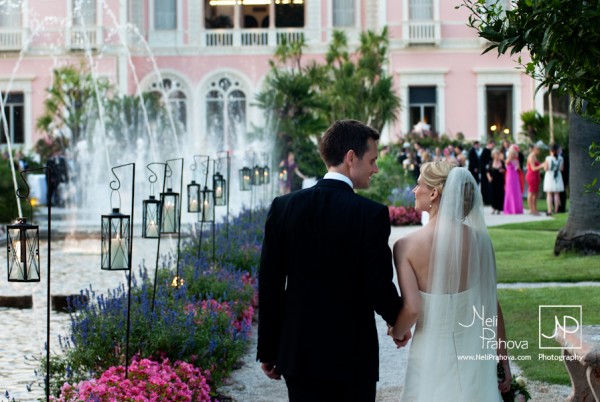
by Michael | Apr 17, 2018 | Blog
So your mind is on your approaching big day? The wedding ceremony is crucial (but you will be in safe hands with your civil celebrant).
However, once that part is over, what happens next?
Don’t fret! If you have hired a toastmaster, they will advise you. As should your (or the venue’s) Event Planner. However, you’ve arrived at my blog and I can offer you a guide to put your mind at ease.
Arrival
You may form part of a receiving line to greet the guests. It will normally consist of the bride’s parents (the hosts), the groom’s parents, bride, groom and, if desired, attendants (in that order). (If it’s a smaller reception, it might just be you.)
This can take quite a time, and it may be preferable to dispense with this – PROVIDED that you (and, possibly, your parents) circulate during the meal. Remember, everybody will want to congratulate you!
The Meal
At a sit-down reception, the bridal party occupy the top table. Traditionally, they should be (from left to right as viewed by the guests): chief bridesmaid, groom’s father, bride’s mother, groom & bride, bride’s father, groom’s mother and best man.
There ought to be a table-plan and/or place-cards for guests. Obviously, ensure there are enough chairs available for all!
Thank you
If it’s not too formal, or a buffet, you and your new spouse will circulate, as I’ve suggested, briefly thanking guests for coming. You return to the table for the cake-cutting, speeches and toasts.
Cutting the cake
The bride places her hand over the groom’s and together they cut the cake. (It may be worth cutting it in advance, if the icing is very hard!) Someone else will cut the cake up and distribute it to everybody. (You may want to send some pieces to absent friends, so reserve these.) You traditionally keep the top tier (for the christening of the first child).
Speeches and Toasts
Ideally, they will not be too long! Incidentally, I can offer some tips on presenting (please see my blog: https://vowsthatwow.co.uk/delivering-a-wedding-speech/) .
The bride’s father will toast the couple; the groom replies on behalf of himself and the bride (thanking the bride’s parents for the wedding, the guests for attending and for their presents and toasting the bridesmaids); the best man replies on behalf of the bridesmaids and reads out any messages from absent friends.
At the end
You normally leave first (announced by the best man).
Job done!!





